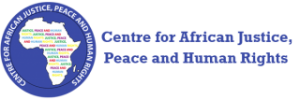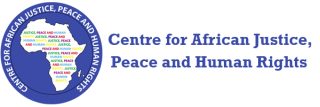Interviewer: Beatrice Aureli
Editors: Sarah Mohamed and Tamara Frunse
INTERVIEW WITH DR. TOM MARFO, Director of Christian Aid and Resources Foundation – CARF [http://www.womentrafficking.eu/]
 Rev. Dr. Tom Marfo is a Ghanaian pastor, founder and executive director of the Christian Aid and Resources Foundation, an NGO based in Amsterdam, dedicated to the rescuing and rehabilitation of victims of human trafficking. Dr. Marfo works as an expert on the issues of human trafficking from Africa to Europe. He has rescued a significant number of victims, who were smuggled from Africa into the Netherlands, exploited and forced into prostitution. For his outstanding work, he was presented with the Marga Klompé Foundation award in 2002, and received the ‘The Hero of Amsterdam’ award in 2003. Dr. Tom Marfo is committed to fight for the absolute elimination of modern-day slavery.
Rev. Dr. Tom Marfo is a Ghanaian pastor, founder and executive director of the Christian Aid and Resources Foundation, an NGO based in Amsterdam, dedicated to the rescuing and rehabilitation of victims of human trafficking. Dr. Marfo works as an expert on the issues of human trafficking from Africa to Europe. He has rescued a significant number of victims, who were smuggled from Africa into the Netherlands, exploited and forced into prostitution. For his outstanding work, he was presented with the Marga Klompé Foundation award in 2002, and received the ‘The Hero of Amsterdam’ award in 2003. Dr. Tom Marfo is committed to fight for the absolute elimination of modern-day slavery.
As part of the efforts of the Centre for African Justice, Peace and Human Rights (CAJPHR) to create awareness and dialogue around sexual violence perpetrated against the male gender in conflict, post-conflict and peace situations, Beatrice Aureli, Legal Researcher at the Organization, has conducted an interview with Dr. Tom Marfo with the request to share his insights on human trafficking and sexual exploitation and to shed light on the victimization of men in the corresponding context.
I wanted to talk about the challenges that migrants are exposed to when they arrive in the Netherlands. And in particular, I would like to discuss with you the phenomena of human trafficking and sexual exploitation.
My first question is, what does the process of reporting, investigating and prosecuting human trafficking and sexual exploitation consist of in the Netherlands?
Well, to begin with, when we talk about the legal aspects of human trafficking, the act of reporting, processing the information and prosecuting the offenders and, if I may add, also the rehabilitation of victims is all one single package, but you have to start from the premise that you are talking about a criminal underground business. Human trafficking is modern-day slavery. It is the marketing of human beings as a commodity. It is a business ran by underground criminal syndicates. Therefore, we cannot, like the drug business which is probably the biggest criminal enterprise in the entire world, find traces of it. We don’t see it on the streets, and yet it is one of the biggest enterprises in the whole world. And so it brings in billions of dollars to the perpetrators. Moreover, looking at its broader marketing outreach, when we are talking about human trafficking, we are not only talking about the sexual aspect, defined as the client-victim relationship. We must also analyze the pornography aspect of it, the tourism aspect of it, consider the medical cost, and the movement across borders. So the issue is complex, as it has different facets of marketing strategies, and when we come to observe the criminal aspect, just like the drug issue, it is not easily identifiable. It is not something easy and clear like “here is the victim and here is the perpetrator, and therefore we bring the person to court and you have lawyers on both sides arguing”. This is not the script for a criminal justice issue. This is something that is kept highly secret by both the criminals and the victims themselves.
I just finished a documentary today, and the interviewer asked one of the victims “Why haven’t you reported it all these years? So many decades of abuse, why didn’t you report it?”, and the victim said: “Do I dare to report? I once tried to run away from Nigeria and they killed my brother, because of my effort to escape from them”. Unfortunately, there are endless well-documented cases of the syndicates going after the victims’ family members in their country of origin. They know their families, they came from there, sometimes they are even related. They previously knew each other, or they knew the extended family. So if the victims run away, they go after their mother or father or close family members. Therefore, coming to your question: the criminal system of jurisprudence in this country requires that the victim is asked: (a) to produce the perpetrator, (b) to stand in court to testify against him or her, and (c) to give a high level of proof that indeed this person brought her. The evidence to convict a perpetrator is very difficult to come by, due to the nature of the trafficking itself, because it is an underground criminal business. And quite often the victims also cannot mention other girls who have been trafficked by the same person, since they can’t corroborate their stories. So, even though a victim wants to prosecute its perpetrator, it is very difficult to get a conviction in court. And because of the threats that perpetrators use against their victims, because of the use of voodoo, and because of retribution against them or their family members back in Africa (and the consequences being serious harm or death, and there are countless examples of that), it is difficult for the victims to identify and out the perpetrators due to the fear of either being harmed or their family members being harmed. So these are key factors that put victims kind of in a black hole, where cooperating with the police is inconvenient and extremely risky, even though the authorities are willing to cooperate and assist them.
So the perpetrators threaten their victims so that they don’t have the courage to step up and speak up for themselves, to denounce what has happened to them.
Yes, precisely, that’s what I am saying. And there are different kinds of threats. For example, some victims coming from Nigeria have gone through voodoo rituals and they believe that if they break the rules given to them by the voodoo priest during the sacred ceremonies, they can die or go mad. So sometimes there is this spiritual mind-controlling procedure. Another one consists of making physical threats, which are the most common as so many of them have physical marks on their bodies. There is also a threat to their family members back home. I just finished a documentary where there was a victim talking about her pimps going after her brother to kill him. I also did a documentary and an interview in my research work with a victim from Colombia whose six children are being held hostage so that if she escapes from the Netherlands, they will kill her six children in Colombia. And these gangs were showing her pictures of guns, bullets, telling her that they were for her sons and daughters. And they are not joking. So how do you expect this woman, receiving these pictures, to escape? There are countless cases of women who, even though I tried to help them out of this, I tried to bring them to the police, I failed since if they would do this, the perpetrators would kill their families back home. And the authorities here are looking at just one thing: you cooperate or your case is finished. So that’s what we call in English a ‘catch-22’, a no-win situation: if the victims cooperate, they can lose their lives or the lives of their family members back home. On the other hand, if they don’t cooperate with the authorities here in the Netherlands, then their cases are thrown out. And, most important, getting a conviction is a long way behind from getting them into the court. And when you get to the court, it is also not easy to bring a case against somebody. There is no physical evidence to prove the case against someone and a lot of cases here fall apart. So, in conclusion, I would say that there is less than 5% or 2% of cases of the total number of people who are trafficked to the Netherlands which have been prosecuted successfully. The figure is negligible because of the threats that we just mentioned. Bringing up cases is extremely difficult and starting a prosecution is not that easy.
An article of Dutch news states that 46% of the cases of human trafficking involves somehow
coercion within the sex trade in the Netherlands. In your opinion, to what extent and how is human trafficking related to the sexual exploitation issue in the Netherlands?
If we talk about coercion in relation to the human trafficking issue, I would say that it is 100% related. Every victim is coerced into sex slavery. That’s how I call it: ‘’slavery’’. No one volunteers to be a slave. And the traffickers treat the victims like animals. They think they can tame them by making them obey and using force for a long period of time. The victims are coerced, brutalized, psychologically and physically tortured, threatened, and starved. So at the end of the day, when you are putting a person through all this, eventually, you get to the point where the person behaves like an animal – obedience without question. And throughout all my work-related experience in human trafficking, which started in Nigeria in 1980 until now, and over 25 years of which has been spent in the Netherlands, I found this aspect in each case I encountered. That is why it is called slavery. For me, human trafficking is the wrong terminology. The victims are all coerced and forced with the same methodology that is utilized to tame animals, to be subjected to other humans’ will. The perpetrators show their intent and prove that they will harm them if they don’t obey them. So eventually the victims get to the point that, when someone wants to help them, they only believe in what their perpetrator has told them. And in this sense, the extent of manipulation goes beyond the physical aspect, becoming also emotional and psychological. Eventually, the perpetrators don’t even need to chase their victims, as they wouldn’t risk the lives of their family members by going to the police to report.
Talking about the victims, the article also stated that 1 in 6 victims of human trafficking is male. Did you encounter cases in which the victims were males?
So many cases.
Are the medical and psychological support procedures the same for male or female victims?
The male victims’ psychological and medical support is non-existent. The reason is that the system is lacking behind the legal and prosecutorial aspect in relation to human trafficking, and in particular it is lacking behind on tackling men’s trafficking for sexual exploitation. And yet, this is a very fast-growing business. The first problem is that very little is mentioned about men. Number two, men are very reluctant to disclose the abuse, because it is not ‘manly’ to say that you have been abused. Culturally, it is a taboo to reveal that you have been abused, so when it happens, people tend to hide it. And because of these factors, very few men come out, except when they need spiritual help, and I have seen quite a number of cases.
What do you think should be the first step to be done to support the male victims?
Well, it is extremely difficult. In some cases that I have dealt with, some guys going to Africa as tourists get in touch with local men and promise them to bring them to the Netherlands or other countries in Europe to give them jobs. “You stay with me at my house, and I give you a job.” But imagine when you arrive here, you are in their hands and they take you to an isolated place and the first drink they give you is filled with drugs. Then, they would abuse you nonstop, and you are in a place where you don’t know anybody. Eventually, you will find no way out. And I haven’t seen a single case where the person has reported it officially. None of the victims have or are willing to disclose it to the authorities.
Do you think that by creating platforms where there is the opportunity to provide information on the topic, the victims would be better supported and might eventually find the courage to come out?
Yes, I would absolutely support that, and not only that. There should be a place where people know that you can go and report and also receive private and confidential help. That’s number one and it has to deal with the emotional, mental and psychological aspect of it. And then two, to gradually build a person’s confidence, it doesn’t matter how long ago this has happened, you can still press charges against the perpetrators. If people have that opportunity, that confidence, that crime never dies, then it doesn’t matter whether the harm or the danger is no longer existent. A forum like that would give the victims some confidence. And by the way, when we talk about male victims, we are not even talking about men being trafficked from Africa to Europe, I am talking about men of all nationalities. So it is an issue that is very little reported and very little help is being offered. So we need a complete paradigm shift in our discussion on human trafficking issues, and in general on the sexual violence against men issue. Indeed, many Dutchmen have come to me because they have been abused. If there would be a platform where these victims, despite the years passed, got a chance in bringing their cases against their perpetrators, and if this would send the perpetrators to jail, the system would help the victims and warn the criminals that their crime could be brought up at any time. I think we need to have a debate, to make people aware that this issue exists and we need to handle it as we are doing it for the issue of sexual violence against women.
[The Centre for African Justice, Peace and Human Rights is a non-profit organization based in The Hague. The Centre conducts desk and field research, creates awareness and addresses the silence surrounding sexual violence against men through a series of projects, lectures and publications. Engaging stakeholders and policy makers in conversations on the subject of sexual violence against men is crucial to instigate a change of domestic legislations in African jurisdictions where sexual violence against men and boys is under-reported and unrecognized.]
https://centreforafricanjustice.org
Laan van Meerdervoort 70,
The Hague The Netherlands
